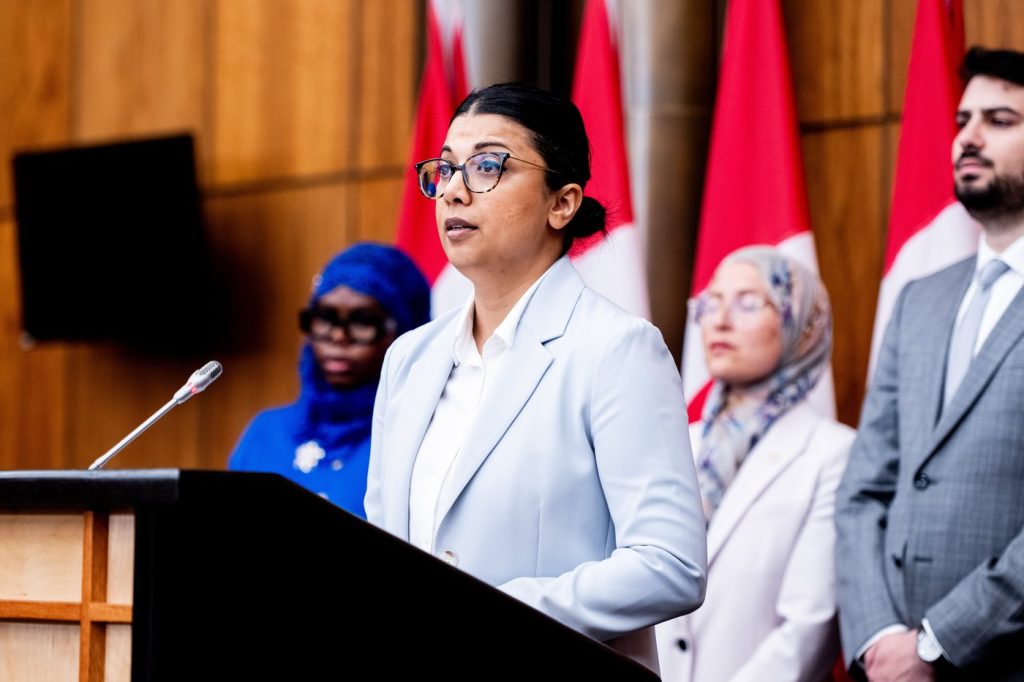OTTAWA – Muslim leaders are asserting that public and private institutions are infringing on the speech rights of individuals voicing opposition to Israel’s military actions in Gaza. They are calling for the Canadian government to officially acknowledge the existence of anti-Palestinian racism.
According to Nadia Hasan, a professor at York University and head of the Islamophobia Research Hub, educational institutions and employers are conflating Palestinian cultural expressions with terrorism. This practice exacerbates the trauma experienced by individuals who are already affected by the ongoing conflict in Gaza.
Hasan highlighted that there has been an insufficient number of prosecutions or public denunciations regarding acts of anti-Muslim hate. She argues that this lack of accountability emboldens those who commit acts of violence against Muslim communities.
A report released by Hasan’s group indicates a striking disparity in corporate responses to recent events. It notes that companies were swift to publicly support Jewish Canadians following the Hamas attack on Israel in 2023, yet they have remained largely silent on Israeli policies that contribute to widespread death and suffering among Palestinians.
Amira Elghawaby, who serves as Ottawa’s special representative on combating Islamophobia, added that students have faced bullying and formal disciplinary actions for wearing traditional Palestinian garments such as the kaffiyeh or for sharing images including the Palestinian flag on social media platforms.
The report compellingly urges all levels of government to recognize and address anti-Palestinian racism officially. Furthermore, it calls upon the Canadian government to take robust measures against foreign interference targeting Muslims in Canada.
This issue was brought to broader public attention through media coverage and discussions within community forums, signifying a growing awareness of the challenges faced by Palestinian communities in Canada. The overall sentiment encapsulated in these discussions reflects a deep concern for the protection of civil liberties and the need for more inclusive dialogue surrounding the complexity of the Israeli-Palestinian conflict.
The implications of these findings highlight not only the immediate impact on individuals speaking out against the situation but also the broader cultural and societal ramifications. There is an increasing call for solidarity with those affected by the conflict and for an honest reckoning with both the historical and contemporary aspects of racism that prolong systemic inequality.
As the conversation evolves, the push for recognition and action against anti-Palestinian racism is expected to continue resonating within communities advocating for justice and equality. The actions of corporations, educational institutions, and government entities will likely remain under scrutiny as stakeholders demand accountability and change.











